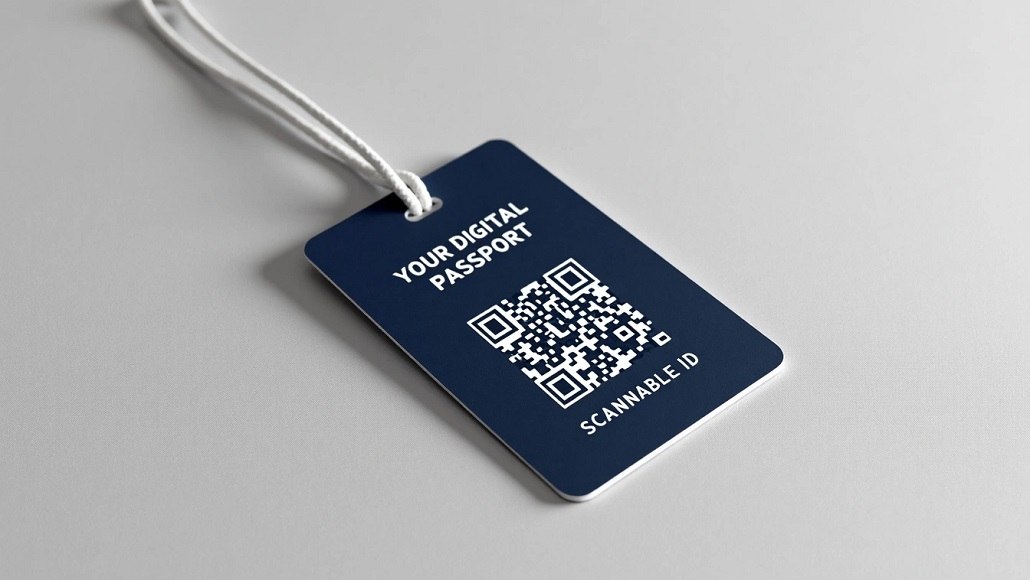The economics of fashion resale is set to be reshaped by upcoming European Union (EU) regulation, with a potential doubling of lifetime product value, and up to 65 per cent of the gains delivered to consumers, according to joint research from Bain & Company and eBay.
The research put forward a transformative opportunity for brands to move beyond compliance and transform the value chain with increased transparency, trust, and circularity. As Digital Product Passports (DPPs) reshaping fashion as became obligatory for textiles from 2026 under the EU’s Ecodesign Regulation, the report highlighted their potential as something greater than just a regulatory necessity.
For example, a £500 (~$684.67) fashion product today might release an extra £500 of value in resale and related services, made possible by the assurance and traceability of a DPP. All the resale platforms, the brands, and the verification services benefit, but consumers are likely to reap the most benefits.
In spite of this potential, almost 90 per cent of surveyed brands continue to see DPPs as a compliance expense. They have called for a strategic re-imagination—aligning DPPs as a vehicle for repeat revenue, deeper consumer interaction, and greater sustainability.
Some 90 per cent of respondents to the Bain survey now see DPPs as an essentially regulatory cost. But studies persuaded companies to redefine DPPs as a strategic investment that can create recurring revenue, promote sustainability, and enhance consumer relationships.
“DPPs are more than just checking a compliance box. They are a foundational shift in how value is created, captured, and sustained over a product’s lifetime,” said Aaron Cheris, partner in Bain & Company’s Retail and Customer Strategy & Marketing practices. “Brands that act early can build a more direct, data-rich relationship with consumers, tapping into resale trends and personalising services in powerful new ways.”
Under the EU’s new Ecodesign for Sustainable Products Regulation (ESPR), almost every tangible product being sold in the EU will need a DPP by 2030—yet 90 per cent of brands continue to view it as an administrative burden, not an opportunity for growth.
But the report has urged a change of heart. It stresses that DPPs, rather than an administrative burden, can be regarded as strategic instruments to generate revenue. By enhancing traceability and confidence, DPPs can lengthen a product’s value far down the supply chain from the initial point of sale.
Digital Product Passports reshaping fashion will be instrumental in unlocking circularity and opening up access to second-hand markets. They can assist brands in accessing new sources of revenue, building on consumer trust, and getting ahead of changing sustainability expectations–setting them up for long-term competitive success in an increasingly regulation-driven world.
“Digital Product Passports are critical to powering the future of circularity in fashion,” said Alexis Hoopes, vice president (VP) of global fashion at eBay. “As a global marketplace at the forefront of resale, we’re exploring how better product data can enable smarter buying, responsible selling, and a more trusted platform. Unlocking value for consumers is a critical part of the connected product evolution.”
The report also emphasized that customers would be capturing the majority of the DPP-generated value. By eliminating friction—no more misplaced receipts or cumbersome listings—DPPs will facilitate one-click resale and give people more confidence. As second-hand economies grow, DPPs can be a growth flywheel—deepening trust, increasing participation, and making circular buying second nature.
As the 2026 ESPR deadline looms closer, it sent a stark message: it’s time to act. Brands that start creating DPP infrastructure, connect with consumers, and test resale models today will be at the forefront of sustainable, data-enabled fashion tomorrow. Those that wait risk being left behind as the resale economy grows exponentially.
DPPs are computerised standardized documents, made accessible through QR codes, NFC, blockchain or other such technologies, and hold detailed data on a product’s ingredients, components, country of origin, environmental impact, and life cycle.

































